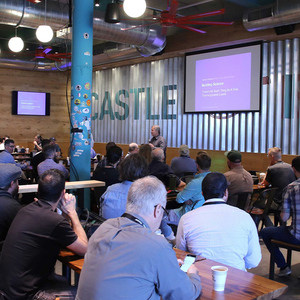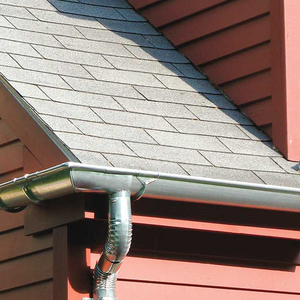There’s a lot here on constructing energy efficient buildings, but I’m spending $600.00 a month on gas and contributing to the destruction of my eight year old’s future ecology while driving every day. Why is no one discussing electric vehicles for we contractors who can’t take a train, bus, trolly, or bicycle to work because we have to carry our tools along? Why are there no electric vans available here in the U.S.? Tesla could easily plop a van body on their Model X chassis and provide us with an excellent cargo vehicle with great power and range. Why is this not happening? Is anyone else here interested in this topic?
Discussion Forum
Discussion Forum
Up Next
Video Shorts
Featured Story

This window and door expert is committed to repairing and restoring newer window systems to preserve their value and extend their lifespan.
Featured Video
SawStop's Portable Tablesaw is Bigger and Better Than BeforeHighlights
"I have learned so much thanks to the searchable articles on the FHB website. I can confidently say that I expect to be a life-long subscriber." - M.K.
Fine Homebuilding Magazine
- Home Group
- Antique Trader
- Arts & Crafts Homes
- Bank Note Reporter
- Cabin Life
- Cuisine at Home
- Fine Gardening
- Fine Woodworking
- Green Building Advisor
- Garden Gate
- Horticulture
- Keep Craft Alive
- Log Home Living
- Military Trader/Vehicles
- Numismatic News
- Numismaster
- Old Cars Weekly
- Old House Journal
- Period Homes
- Popular Woodworking
- Script
- ShopNotes
- Sports Collectors Digest
- Threads
- Timber Home Living
- Traditional Building
- Woodsmith
- World Coin News
- Writer's Digest



















Replies
This is a good question. I myself ride a bike, but I'm sure if you contact the hotline or Tesla technical support, you will be given the most accurate answer to this question than anyone else :)
Electric trucks have been used in the US and the UK for 100 years. They have been made by a variety of manufacturers and are now being made by even more. They aren't generally popular because of the cost and the cost to operate. Contrary to your thinking electric vehicles use more fossil fuels to operate than a fuel powered car. Generally, peop0le tend to forget that electricity has to be produced somewhere and is typically produced by fossil fuels. There is a large power loss in production, more in distribution and even more in getting it into the truck.
I just looked all this up. A Tesla model 3 costs $. 03 per mile (at current US avg rates) in electricity to drive. A 25 mpg sedan will cost about $.11 per mile at current avg. $2.85 gal. So, figure 1/4 the cost. Your $600 weekly regular gas could go down to $150 in electricity.
https://avt.inl.gov/sites/default/files/pdf/fsev/costs.pdf
A fossil fuel fired power plant turbine is far more efficient than a car engine. Currently, we generate with Clean Natural Gas (32%), Coal (30%) Clean Nuclear (20%) and Clean Renewable sources (17% combined). Hopefully we will upgrade more plants to superior safe Nuclear tech (the Chinese are leading) and get that stepped up again after the fiasco of early nuclear when they chose the most dangerous failure prone technologies. They did produce plenty bomb material though. Also, it's clear that we are getting better at renewable sources by the year. So, 70% of our current electrical generating capacity is far cleaner than Gas or Diesel motors and it's improving.
Transporting electricity should be more efficient and safer than moving petroleum. And we can also produce it locally much easier than installing refineries and getting crude to them. Decentralization.
Finally, electric motors are far more efficient than ICE in converting power into motion.
Hope I'm not overstepping here. Just hate to see that myth above get perpetuated.
I am a mechanic motor head type myself with an affection for our miraculous controlled explosion motors, but hey, I can adapt. Simpler cheaper and cleaner sounds good to me.
What nonsense and remarkable stupidity. Electrical power is coming from natural gas which is cleaner than dirty as hell coal, and from wind in states like Texas, and from hydroelectric with dams, and with solar panels. Even with a natural gas fueled power plant it is far easier to effectively filter out pollutants from the stacks a single location than to do this for millions of gas and diesel powered vehicles. This really is not rocket science but one does have to get their head out of the sand and learn to think for themselves instead of swallowing all the Koch brothers propaganda.
In countries where the cost of oil is not subsidized with a $1 trillion a year military the people pay more for fuel and so drive much smaller vehicles and still get the job done. Only in the USA do people think that they need a full size 4WD diesel powered truck with 800 lb ft or torque to transport a table saw and tools to a job site.
Smart contractors know it is far cheaper to have suppliers deliver materials to a job then to send their own men off to the supply stores and lose them for half a day and need a bigger truck and worry about liability if they are in an accident. My lumber yard charges $35 to deliver our orders and a lot can fit on their 8-ton flatbed trucks.
I have solar at my house and so am subsidizing my neighbors during the summer months, but I have enough excess to charge an electric vehicle overnight at which point my fuel costs are zero.
In 2020 you will see more hybrid work trucks which includes pickups and vans. The really big trucks have been undergoing conversion to electric power for years as there are lower fuel costs and far lower service and maintenance costs (including down time) and it takes less skilled mechanics to keep them running.
Don't be discouraged by naysayers...
My friends who have electric cars and sign up for green electricity thru their utility provider pay less than they did for gasoline.
At least someone is working on an electric truck:
http://fortune.com/2019/04/12/gm-amazon-backed-electric-car-startup-rivian-talks-dead/
Good news, e-truck maybe available in 2020:
https://www.engadget.com/2019/04/14/gm-rivian-amazon/
As I've already pointed out, electric trucks have been in use for 100 years. No need to wait at all.
https://en.wikipedia.org/wiki/Morrison-Electricar
Ford is working on an electric Transit van for Europe:
https://www.autoblog.com/2019/04/02/ford-transit-van-ev-phev/
So it should get to the US eventually...
Also: https://www.autoblog.com/2019/04/12/ford-transit-test-van-ev-cabin-heat/
$600 is a lot of gas!!! Would a diesel Transit or Sprinter make financial sense for you?
Thank you Liam 963
I hear Tesla is in negotiations with Mercedes to collaborate on just such a vehicle. Hopefully it'll be out soon and affordable.
$600 IS a lot. I unfortunately have long commutes here in Southern California and heavy traffic doesn't help. Had I known my situation would cause me to spend so much on gas I would have chosen a diesel powered vehicle instead. But it appears my personal economic strategy was incorrect. I tried to save money in the initial purchase and believed the manufacturer's advertised gas mileage. But more than the cost, once I realized that 100% of the gas I put in my tank is spewed into the atmosphere while I'm driving around, around 50 gallons a week(!) I thought I have to come up with an alternative. I've even thought about finding a secure place to park my van and using a train for my commutes.
No reason to wait for Tesla. Smiths has been making and selling electric trucks since 1930. They have a new one coming out soon that's even more efficient. Here are some listings for used ones. Please come back and tell us which one you get and how it's working out.
https://www.truckpaper.com/listings/trucks/for-sale/list/manufacturer/smith
I know it is not electric but I have a Mercedes Sprinter and it is very economical on diesel. I had put 4000 pounds in it (legal at 3500 pounds ) and I made 11 litres/100km equal to about 21 mi/gallon US on a 3 hours run. A top machine for a contractor. I've been researching for an electric car when changing ours and the ecology side seems not that evident. It depends a lot how your electricity is made and the battery manufacturing and disposal. It could easily be more damaging for the environment that helping